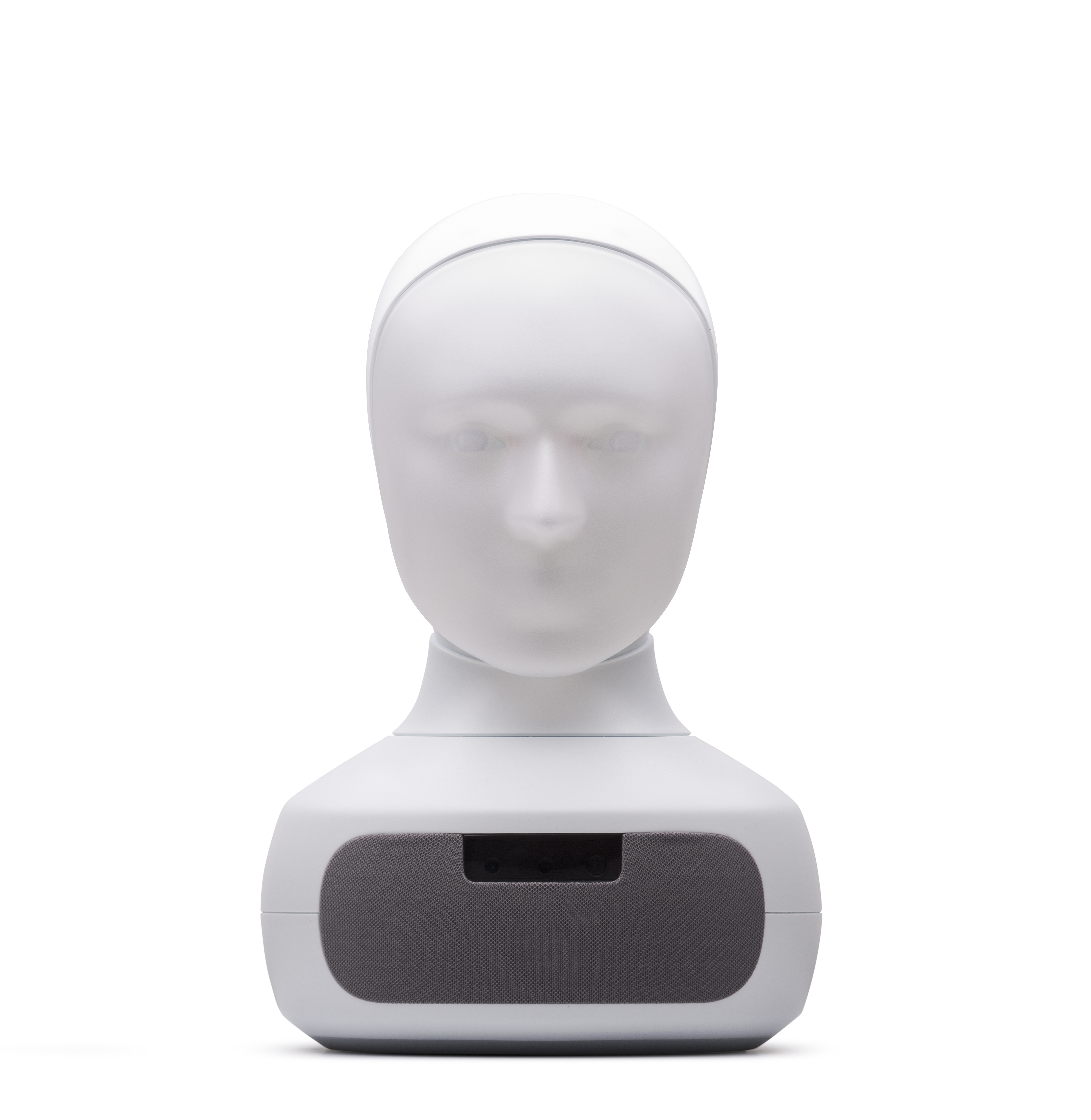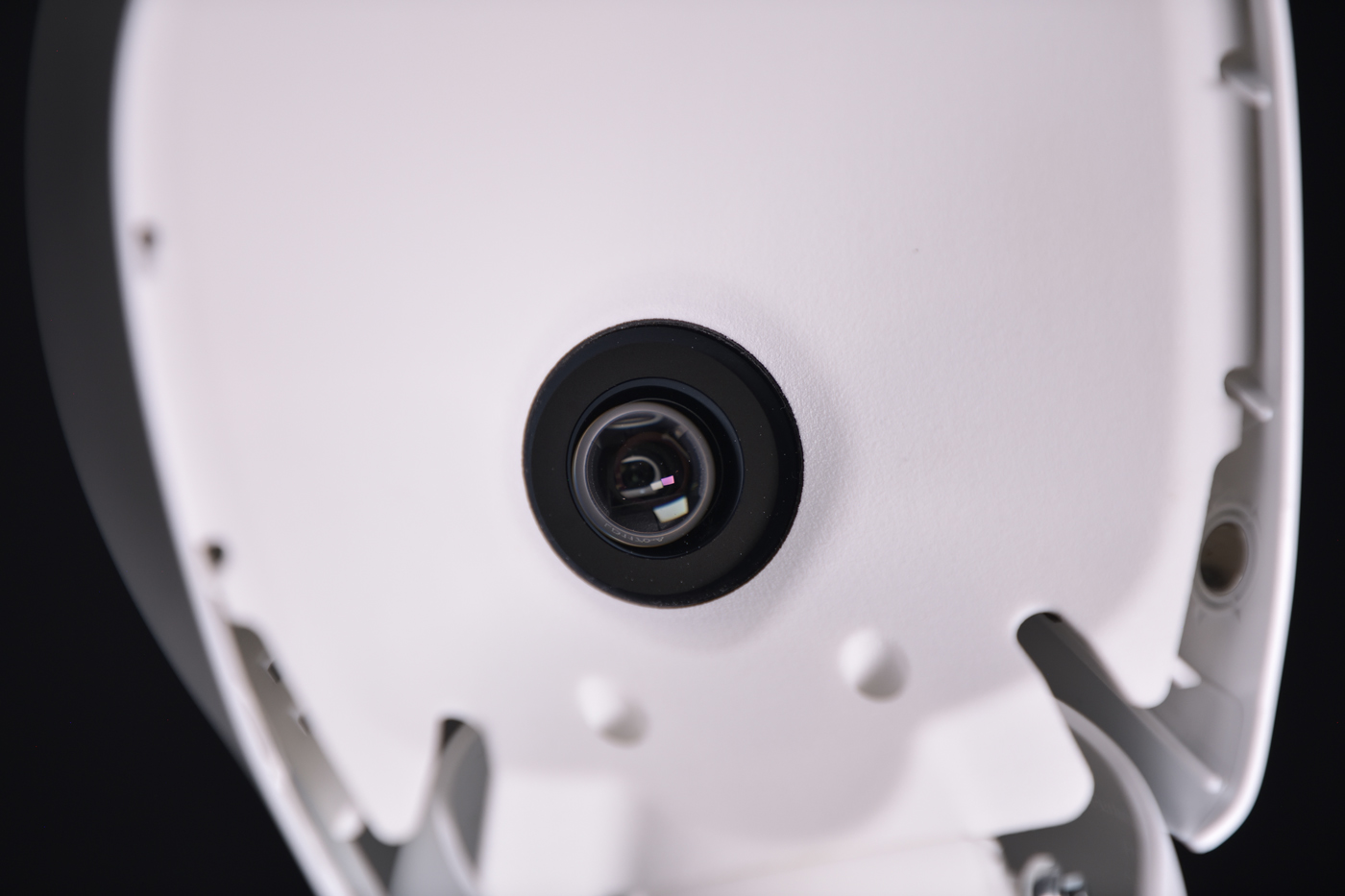The Furhat Robot Platform

Physical Dimensions
- Robot Weight: 3.5 kg
- 410mm x 270mm x 240mm (HxWxD)
- Eye Height: ~300¹ mm
Onboard Camera Sensor
- RGB Sensor Type
- 120° diagonal FOV
- 3.4 MP camera streaming 640x480 pixels
- Fixed Focus for interaction space
- Automatic Exposure control
Onboard Microphones
- 2 x 100Hz~10kHz digital, PDM stereoscopic digital MEMS omnidirectional microphones, set 180mm apart on the robot’s shoulders.
Bundled USB Microphones
- 4 x MEMS omnidirectional digital mics
- Far-field voice pick-up up to 5m
- DOA (Direction of Arrival)
- AEC (Automatic Echo Cancellation)
- AGC (Automatic Gain Control)
- NS (Noise Suppression)
- Sensitivity: -26 dBFS (Omnidirectional)
- Acoustic Overload Point: 120 dBSPL
- 360° pick-up pattern
Projection and Optics
- 165² lumens brightness
- 1280x720³ Resolution
- 1400:1 Contrast
- Texas Instruments DLP®
Furhat Mask
- The mask is based on a Furhat proprietary polymer blend that is optimized for optical performance in conjunction with Furhat Projection & Optics system.
Motion Platform
- 3 Degrees Of Freedom (DOF)
- Pan/Tilt/Roll with silent off-axis panning
- 3 x high speed servos, active feedback
- 0.088° resolution
- 25 kg·cm stall torque
- Metallic gears

Rotary Controll
- Rotary thumbwheel controller with click function controls volume & on face menu.
Computer Platform
- Intel Core i5 CPU, up to 3.40 GHz
- 8GB RAM
- 120 GB SSD mass storage
- Iris Plus 640 GPU
Speaker System
- Dual speakers are optimised for human voice frequencies and angled to support the interaction space.
- 2.5”
- 30W Power
- Full range type
- Magnetic type
- Aluminium cone
Rear I/O Panel
- Power On/Off Switch
- 19⁴ Volt/90 Watt power input jack
- 802.11ac WiFi, 2.4/5.0 Ghz
- Wired Ethernet Port - 10/100/1000
- 2 x USB A supporting USB 3.0
- 1 x USB-C⁵
LED Ring
- Enables a silver lining effect, allowing the robot to signal a presence outside the container of its body, further increasing its presence in a space when needed. Uses 88 x RGB LED, controllable from FurhatOS/Skills.
Product Packaging
- Robot Weight: 3.5 kgShipped in protective foam box, hard shelled protective case as optional add-on
Environmental & Installation
- Ambient Temperature: 5-25° C / 41-77° F
- 200 mm ventilation clearance behind unit
External Monitor Support
- The Furhat Platform provides support for an external monitor connected via the robot’s USB-C port. The officially supported monitors are:
- ELO 1502L – Full HD (1080p version)
- Dell P2418HT 24” Touch






















.svg)
